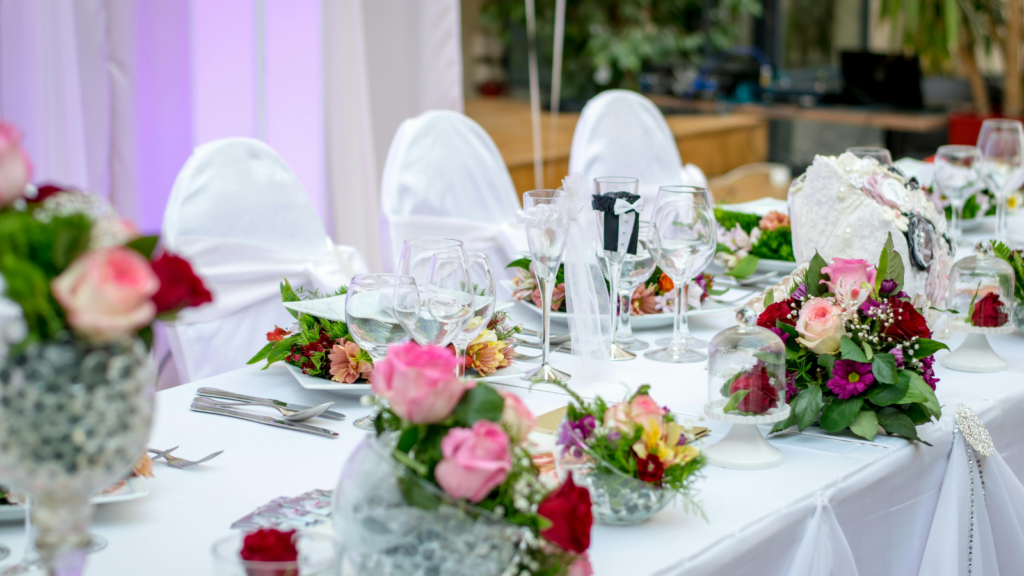In the fast-paced world of event planning, event coordination skills are the backbone of every successful gathering. Whether it’s a corporate conference, a wedding, or a community festival, the ability to seamlessly orchestrate an event from start to finish can make all the difference. These skills aren’t just about managing logistics; they involve creativity, problem-solving, and effective communication.
Understanding the nuances of event coordination skills can be the key to thriving in this competitive field. By honing these skills, professionals can elevate their careers and consistently deliver events that leave a lasting impression.
Event Coordination Skills
Effective event coordination blends various skills to ensure each gathering runs smoothly. Mastering these skills is crucial for creating seamless and successful events.
Communication/Organizational Skills

Strong communication enables coordinators to convey expectations and instructions clearly. They need to engage with clients, vendors, and staff effectively, ensuring everyone is aligned with the event vision. Coordinators must also mediate between parties, resolving conflicts to facilitate smooth operations. Developing active listening and negotiation abilities is essential for maintaining positive relationships throughout the planning process.
Efficient organization is vital for managing logistics and time-sensitive tasks. Coordinators must prioritize tasks based on event timelines, ensuring nothing is overlooked. They should develop timelines, set deadlines, and keep detailed records of each event component. Use of project management tools aids in tracking progress and facilitating seamless transitions between various planning stages, improving overall efficiency.
Problem-Solving Skills
Coordinators encounter unexpected challenges, so problem-solving is essential. They must anticipate potential issues and quickly develop solutions to prevent disruptions. Effective problem-solving involves evaluating situations, considering alternatives, and implementing practical remedies. Whether it’s addressing last-minute changes or technical difficulties, adept problem-solving ensures events proceed smoothly and maintain high-quality standards.
Attention to Detail
Attention to detail ensures precision in event planning, impacting overall success. Coordinators should meticulously check contracts, schedules, and vendor agreements. Overlooking small details can lead to significant problems, so they must ensure every element meets specifications and client expectations. Attention to detail also involves double-checking layouts and setups to ensure nothing is missing or incorrect on the event day.
Developing Event Coordination Skills
Cultivating event coordination skills involves continuous learning and hands-on experience. These skills ensure the efficient organization of memorable events.
Training and Certifications

Formal training and certifications enhance event coordination skills by providing a foundation in leading practices and industry standards. Many institutions offer courses such as the Certified Meeting Professional (CMP) designation, which covers topics from event design to risk management. These certifications build credibility by validating a coordinator’s expertise. Additionally, attending workshops and seminars keeps coordinators updated on emerging trends and technologies.
Practical Experience
Gaining practical experience is essential for honing event coordination skills. Involvement in diverse events such as conferences, weddings, and festivals provides real-world insights and challenges that refine skills. Shadowing experienced coordinators allows learners to observe professional strategies. Volunteering for community events offers hands-on practice in managing logistics and interacting with vendors and clients. This immersive experience is invaluable in developing the skills required for successful coordination.
Tools and Resources for Event Coordinators
Efficient event coordination skills often hinges on the right tools and resources. By leveraging these, coordinators streamline processes, manage tasks, and enhance overall event quality.
Event Management Software

Event management software plays a pivotal role in organizing events. Platforms like Eventbrite and Cvent offer features for registration, ticketing, and analytics, allowing coordinators to track attendance and engagement seamlessly. These tools simplify communication by integrating email marketing and social media sharing functionalities, ensuring broad outreach. Additionally, they provide budgeting and scheduling functionalities, aiding in financial management and timeline adherence. Coordinators benefit from real-time updates and mobile access, making it easier to manage events on the go.
The Key To Thriving
Mastering event coordination skills is crucial for anyone aiming to excel in the dynamic field of event planning. These skills ensure not only the smooth execution of events but also the creation of memorable experiences for attendees. As the event planning industry continues to evolve, those who invest in developing their coordination skills will undoubtedly stand out and achieve lasting success.

